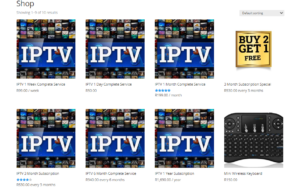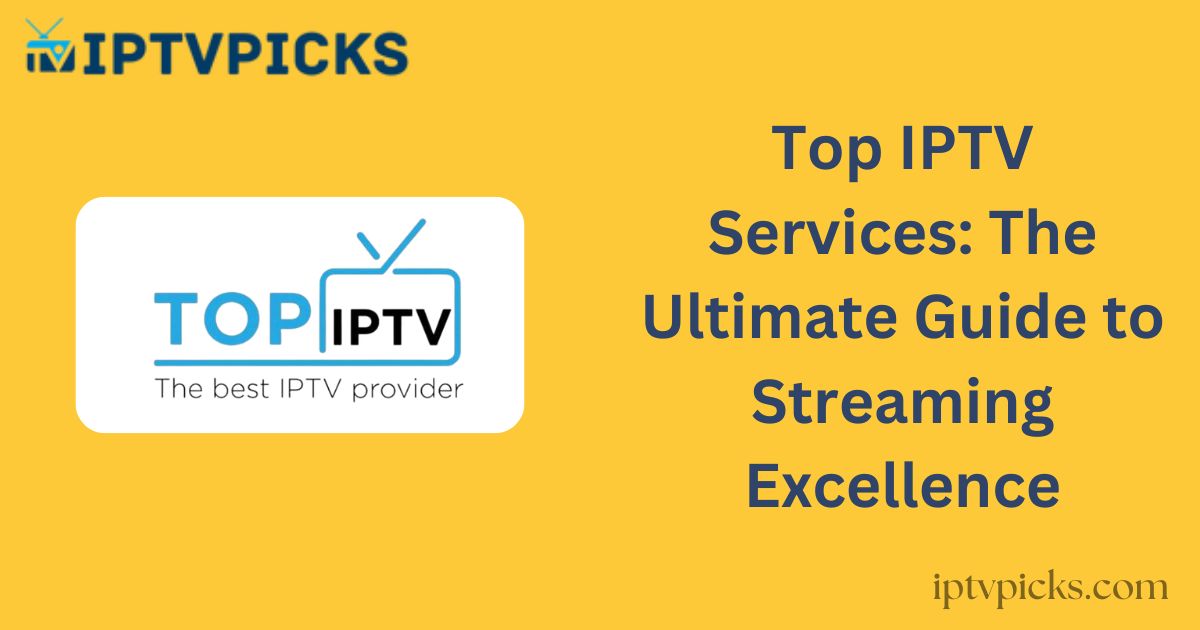IPTV (Internet Protocol Television) is a cutting-edge technology that delivers TV content over the internet, rather than traditional cable or satellite. It offers access to live TV channels, on-demand content, and much more, all in high-quality resolution. IPTV services have become increasingly popular due to their convenience, affordability, and wide range of content offerings. In this guide, we will explore how IPTV works, its key features, pros and cons, pricing, and how to get started with an IPTV service.
Key Features:
- Live TV Streaming: Access to hundreds or even thousands of live TV channels worldwide, including sports, news, and entertainment.
- Video On-Demand (VOD): Choose from a vast library of movies, TV shows, and other content available to stream whenever you want.
- Electronic Program Guide (EPG): A user-friendly guide to help you navigate through the available channels and content.
- High-Quality Resolution: Support for HD, Full HD, and 4K streams for an immersive viewing experience.
- Multi-Device Support: Watch IPTV on multiple devices such as smart TVs, computers, smartphones, and tablets.
- Catch-Up TV: Access to shows and programs you missed from previous days.
- Parental Controls: Easily manage what content children can access.
How to Use IPTV:
- Choose an IPTV Service Provider: Research and select a reliable IPTV provider that suits your needs in terms of content and budget.
- Install the IPTV App: Download and install the IPTV app on your preferred device (Smart TV, Android Box, PC, etc.).
- Get Subscription Credentials: After purchasing a subscription, you will receive login details or an M3U playlist URL.
- Configure the App: Enter your credentials or upload the playlist to the IPTV app.
- Start Watching: Once everything is set up, you can browse channels, on-demand content, and begin streaming.
Also Visit : Top Visit
How IPTV Works:
IPTV works by delivering content via the internet using IP (Internet Protocol). Instead of traditional broadcast methods like satellite or cable, IPTV streams media directly to your device over the internet. It uses a client-server architecture, where your device (client) requests content from the IPTV provider’s server. The content is then delivered in real-time, allowing users to watch live TV and on-demand content instantly.
Pros:
- Wide Range of Content: Access to international channels and on-demand libraries that traditional services often lack.
- Flexible Device Support: Watch on various devices at home or on the go.
- Cost-Effective: IPTV services are typically more affordable than cable or satellite TV.
- Customizable: You can often select the type of channels or packages that suit your preferences.
- High Definition Streaming: IPTV services support HD, Full HD, and even 4K streams.
Cons:
- Internet Dependency: Requires a stable and high-speed internet connection for optimal performance.
- Legal Issues: Some IPTV services operate in legal gray areas, so it’s important to ensure the provider is licensed.
- Buffering and Latency: In cases of poor internet connection or server overload, users may experience delays or buffering.
- Compatibility: Not all IPTV services work on every device, so it’s important to check compatibility before subscribing.
Price:

IPTV prices vary depending on the provider, the range of channels offered, and the duration of the subscription. On average, you can expect to pay around $10 to $20 per month. Some providers offer discounts for longer-term subscriptions (e.g., 6 months or 1 year), and additional features like VOD or premium channels may increase the price.
Conclusion:
IPTV offers a flexible, cost-effective alternative to traditional cable and satellite services, providing access to a wide range of international content, on-demand libraries, and live channels. However, it’s important to ensure a stable internet connection and choose a reliable provider to avoid potential issues like buffering or legal concerns. With the right IPTV service, you can enjoy high-quality streaming on multiple devices and access an impressive selection of content from around the world.
FAQs:
Is IPTV legal?
IPTV itself is legal, but some providers offer content without proper licensing. It’s important to choose a provider that operates legally to avoid any issues.
What internet speed do I need for IPTV?
For standard definition streaming, a speed of 5 Mbps is sufficient. For HD content, you’ll need at least 10 Mbps, and for 4K streaming, around 25 Mbps or higher is recommended.
Can I use IPTV on multiple devices simultaneously?
It depends on the provider. Some allow multi-device usage, while others limit it to one device at a time.
What is an M3U playlist?
An M3U playlist is a text file containing a list of IPTV channels and links, which can be loaded into an IPTV player for streaming.
Do IPTV services offer customer support?
Most reputable IPTV providers offer customer support, either through email, live chat, or support tickets, to help with any technical issues or subscription queries.
















